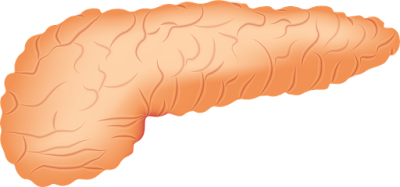Supplements for eye health
Eye health supplements
Proper diet can help you in the long maintaining good vision. Viewing nutrients that should be included in the diet for healthy eyes.Vitamin A for the eyes
To maintain the correct long-sight, should m. Al. take care of the presence of dietary products containing vitamin A. Its deficiency in the body leads to a "chicken blindness," or amblyopia at low light intensity. It is also mentioned among the causes of eye disease known as macular degeneration or a related macular degeneration with age.The deficit of vitamin A - as being responsible for healthy mucous membranes - also contributes to the occurrence of the so-called. of dry eye. Sources of vitamin A in the diet are both products of animal origin (which is in the form of retinol and its derivatives) and vegetable (where it is present in the form of carotenoids, m. Al. Beta-carotene).
Retinol and its derivatives are present in organ meats, some species of fish, and eggs. Most beta-carotene is in carrots, parsley, kale, beet leaves, chives and red pepper. Its also good sources include apricots, melons, plums, cherries.
Vitamins C and E for the eyes
On the menu for the eye also should include foods rich in vitamins C and E. Their frequent consumption can help prevent and delay the development of cataracts and macular degeneration. Vitamin C is found in vegetables and fruits. Its richest sources are fruits of wild rose and sea buckthorn, black currants, parsley and red pepper. Vitamin E is present in vegetable fats, nuts, sunflower seeds, pumpkin seeds, almonds, and also in parsley, peppers, spinach and black berries.B vitamins for the eyes
For the good functioning of the eyes are also affected by B vitamins, which support the work of the optic nerve. The most important vitamin for the eyes of this group is choline. It is responsible for the production by the body the right amount of acetylcholine, which ensures the correct humidity of the mucous membranes. The main sources of B vitamins are wheat germ, sunflower seeds, as well as yogurt, cheese, fish and eggs. Large amounts of choline are also found in organ meats, particularly in the liver.Lutein and zeaxanthin for eye
Other important for eye health ingredients of dietary lutein and zeaxanthin are. Like the aforementioned vitamins, they play an important role in preventing and delaying the onset of blindness in the elderly. It is believed that the high concentration of these substances in the blood can protect the retina from the damaging effects of light radiation. Both compounds are present m. Al. in kale, spinach, broccoli, green peas, pumpkin, peppers, corn, kiwi, grapes and oranges.Omega-3 for the eyes
Zinc for the eyes
In the diet should also add foods rich in zinc, which helps maintain good vision. Its deficiency can cause disturbances in adaptation to darkness, and the elderly - macular degeneration. To not lead to a deficit of this element in your body, you should eat seafood, fish, lean meat, poultry, eggs, cheese, nuts and pumpkin seeds. You can also consider supplementation (eg. Cynek + SR).In addition, it must be remembered that - apart from a varied diet - in ensuring good vision can help: wearing sunglasses, giving up smoking, regular monitoring of eye and other diseases that increase the risk of eye disease (eg. Hypertension).


Comments
Post a Comment